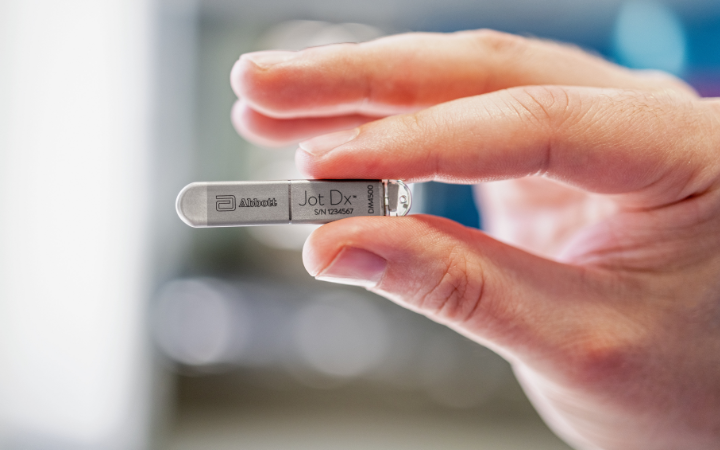Abbott debuted its latest insertable cardiac monitor, equipped with new features to help clinicians sift a constant flow of heart rhythm data for potentially dangerous conditions such as atrial fibrillation.
The Jot Dx is capable of filtering out recordings of what the company describes as “key episodes” to help diagnose arrhythmias that may occur sporadically throughout the day. The implanted hardware can also deliver all abnormal heart rhythm data collected.
As the COVID-19 pandemic has put greater value assessing and monitoring patients remotely, devices have brought a flood of data into the clinic, requiring more time and resources to search it for the relevant details.
Once inserted just under the skin, the Jot Dx provides 24/7 heart monitoring by wirelessly linking with Abbott’s myMerlin smartphone app. The program allows real-time viewing by patients and their healthcare providers and lets users log symptoms as they happen.
When its filters are turned on, the system displays the three most pertinent episodes of an abnormal heart rhythm. Abbott estimates that for every 100 patients, this feature could save clinicians up to 120 hours per month in reviewing transmissions.
In addition, the myMerlin app connects the patient with the company’s SyncUP connected care service, which enrolls people with newly implanted devices into a virtual orientation program, to make sure they understand how the cardiac monitor works and that data is being uploaded correctly. SyncUP also supports Abbott’s Gallant implantable defibrillator.
“Technology can be intimidating, particularly when your heart is relying on it,” Heidi Hinrichs, global clinical and regulatory VP of Abbott’s cardiac rhythm business, said in a statement. “With Jot Dx ICM, myMerlin, SyncUP and our other technologies, we want people to feel supported, knowledgeable and confident when using them, and ultimately, in control of their care.”
Abbott isn’t the only one bringing new tech to implantable cardiac monitors: Last week, Medtronic received the FDA’s blessing for artificial intelligence algorithms that automatically alert cardiologists when irregular heartbeats are detected.
The AccuRhythm software upgrade, available through Medtronic’s CareLink network, comes one year after the FDA cleared the company’s Linq II monitoring device. The small implant’s battery life is expected to last up to four-and-a-half years.

